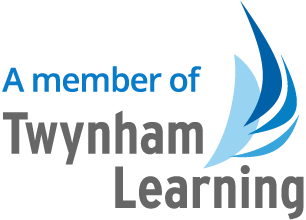Science
A high-quality science education provides the foundations for understanding the world through the specific disciplines of biology, chemistry and physics. Science has changed our lives and is vital to the world’s future prosperity, and all pupils should be taught essential aspects of the knowledge, methods, processes and uses of science. Through building up a body of key foundational knowledge and concepts, pupils should be encouraged to recognise the power of rational explanation and develop a sense of excitement and curiosity about natural phenomena. They should be encouraged to understand how science can be used to explain what is occurring, predict how things will behave, and analyse causes.
Purpose of Study, Science National Curriculum, 2014
At Christchurch Junior School, we deliver a high-quality science education which provides the foundations for understanding the world.
Science has changed our lives and plays an integral role in the world’s future. Through building up a body of key knowledge and concepts, our children are encouraged to develop a sense of excitement and curiosity about the world they live in. They are taught to understand how science can be used to explain what is happening, predict what will happen and analyse what they have observed.
Intent
At CJS, our children are urged to constantly ask questions and where practicable answer them.
Through the National Curriculum for science we aim to develop scientific knowledge and conceptual understanding through the specific disciplines of Biology, Chemistry and Physics. It is our intent that children will develop an understanding of the nature, processes and methods of science through the different types of enquiry that help them to answer scientific questions about the world around them. Children will move on to their next stage of education equipped with the both the conceptual and disciplinary scientific knowledge required to understand the uses and implications of science, today and for the future.
Implementation
Throughout their science learning at Christchurch Junior School, much of the conceptual content of the curriculum will be taught through the disciplinary ‘Working scientifically’ skills, which specifies the understanding of the nature, processes and methods of science for each year group. It should not be taught as a separate strand.
These types of scientific enquiry include: observing over time; pattern seeking; identifying, classifying and grouping; comparative and fair testing (controlled investigations); and researching using secondary sources. Through these investigations, children seek answers to questions through collecting, analysing and presenting data. Children are encouraged to complete ‘child-led’ investigations in Year 5 and 6, while in Year 3 and 4 they are taught the skills needed for this.
Children’s science capital is enhanced through opportunities to further inspire their scientific development through school visitors and visits, such as Winchester Science Museum and Planetarium and opportunities such as the annual Science Fair, A Family science Evening and an Astronomy evening.
Planning for science is a process in which all teaching staff are involved. Delivering a broad and balanced science education to our children is a core principle of our school. All classes receive a minimum of one and a half hours science per week ideally 2 hours, of which a minimum of 50% of lessons overall include practical scientific enquiry (recommendation – 1 long afternoon lesson of 2 hours.). To better suit the needs of individual classes, units may have been moved between years or amalgamated, where appropriate. However, science is taught every half term throughout the school year.
The school ensures that a broad and balanced science curriculum is followed in which enquiry is at the heart of our children’s scientific learning.


